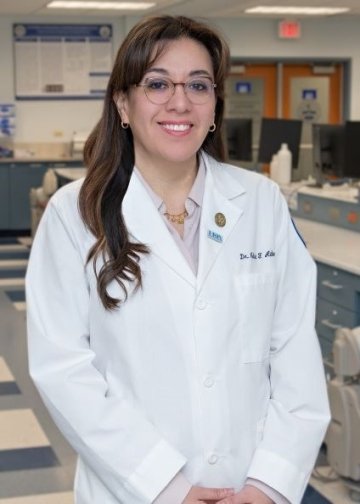
Climate change research and learning about public policy are two of many unique opportunities offered at Midwestern University. David Line, Ph.D., M.P.H., M.S.W., Program Director for the Public Health Program in the College of Graduate Studies (CGS) in Glendale, worked with two Midwestern alumni during their time as students, a current Midwestern student, and three local high school students on national research examining how climate change impacts rural health. They are preparing a white paper as a part of a national team to be presented to the National Rural Health Association (NRHA), a national, nonprofit organization that advocates for rural health in several ways, including lobbying Congress and working with state and regional groups.
Once the paper is approved by the NRHA, “it would be the resource for people developing policy positions, legislative positions, and policy associated with climate change,” said Dr. Line. He added, “We look at it from the perspective of people in rural communities. One of the most important things we’re trying to do is get compensation for people affected by legislation and policies addressing climate change.”
As part of the research, the team examined how climate change affects One Health in several different regions across the United States. Some examples include the impact of wildfires on air quality and respiratory disease, and how natural disasters affect access to rural hospitals, such as a regular commute of 40 minutes increasing to three hours because of a flood damaging a bridge. The students also submit their written work to be reviewed, and they review the work of others who are a part of this national project.
Parintha Gaddam, one of the participating high school students and a senior at BASIS Chandler, said, “I was very surprised to see just how calamitous the health and economic impacts of climate change have been over the last decade, from causing storms that have immense economic damage to the effect on water and air quality. Climate change really can cause a significant negative impact on rural economies and people.” Parintha also discussed the impact of warming temperatures on marine and freshwater animal life. “Over time, several species of fish have completely changed their feeding and reproductive cycles to cope with changing water temperatures, which shows you how much humans are able to impact nature so drastically.”
Abhiram Kilaru, another participating high school student and junior at Paradise Valley High School, said, “I gained immense amounts of knowledge about climate change and an understanding of NRHA. I came to see how the process and goals of public health professionals contribute to related projects.”
Dr. Line discussed how this project helps Midwestern University students prepare for their future careers as healthcare professionals. “It helps them understand how a policy is made, and that we do not have to pick a side on climate change. We do have areas of middle ground. We can agree on what’s happening, whether we talk about climate change or weather patterns. From a healthcare perspective, we examine, ‘how is this my issue?’ It is not just an abstract activity or concept.”
Chicago College of Osteopathic Medicine student Jordan Mitchell (CCOM ’24), who is also pursuing a master’s degree in public health from Midwestern University, joined the project to combine his interests of public health and the One Health initiative. “Having completed a real-world example of how a master’s in public health can be utilized, I will be more aware of similar opportunities should they arise in my future career. As a physician I also plan to incorporate recommendations such as those found in the NRHA climate change white paper into my future practice and implement them to better the health of my patients.” Jordan elaborated, “I hope to take away a strong understanding of how climate change may affect my future patients should they come from a rural community. I also hope to gain experience working on how to write recommendations for public health policies that I can apply to future initiatives.”
Dr. Line added that the participating high school students, who also attended the MWU Health Careers Institute in July 2023, can take away several aspects of this project as they contemplate their future education and careers. “It helps them understand how policies develop; what it means to collaborate and work as a team; how to create the ability to say this is my position, these are my ideas; and how to sharpen their ability to write scientifically,” he said.
Parintha shared, “I plan to study Global Health in college. I feel very prepared to take on my major with more knowledge of the issues and topics I’d be interested in investigating further. Additionally, this project has advanced my understanding of the One Health perspective, and how the environment, animals, and people’s health are all intertwined. It has made me approach my future work differently to account for multiple perspectives rather than just one.”
Abhiram also appreciated the experience of working with professionals and professors around the country. “I will take away the connections I made, the writing skills I developed, and the exposure I gained from this experience. This project has highlighted a future in public health which I may continue in. It has also shown me the wonderful opportunities provided by Midwestern Universities and corresponding programs.”
Dr. Line and the students plan to present their white paper in the spring to NRHA, with the expectation of edits prior to resubmitting in the fall.
Opportunities to conduct research, which ultimately make a difference, are an integral aspect of a Midwestern University education. The University offers an online dual degree and standalone Master of Public Health degree program in Downers Grove and Glendale.



